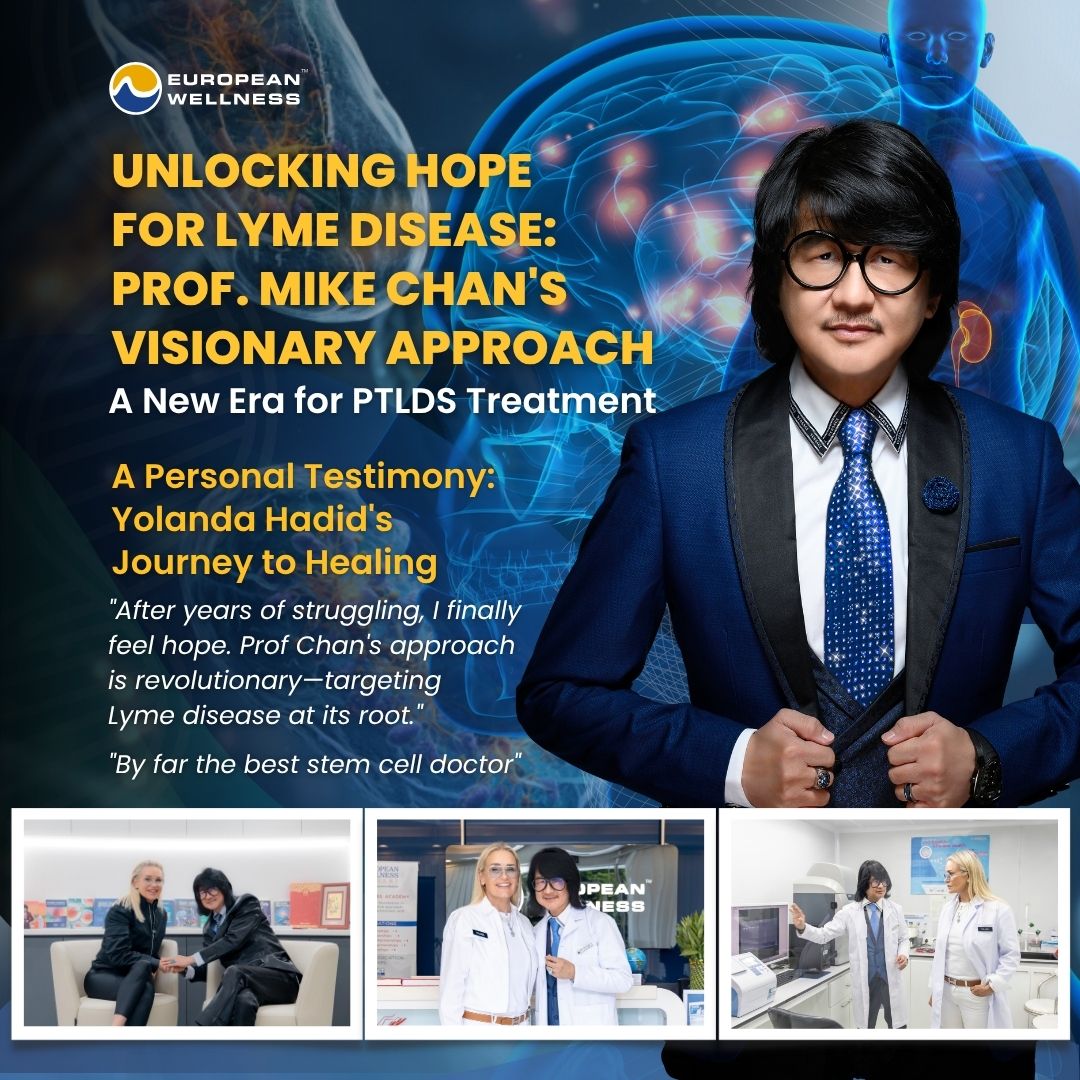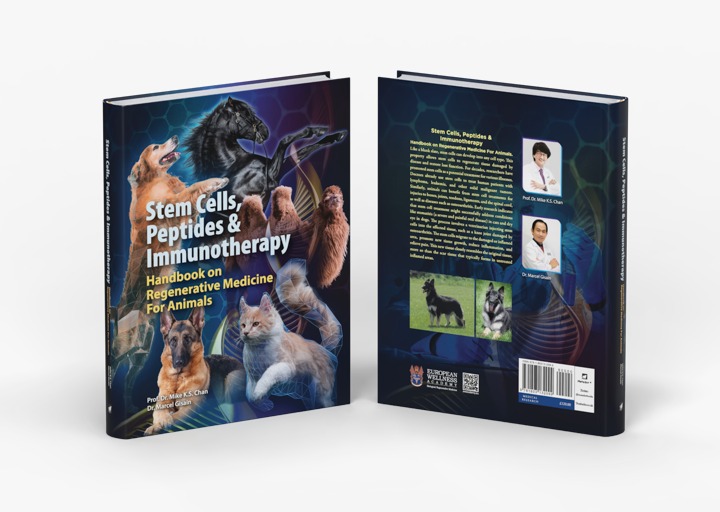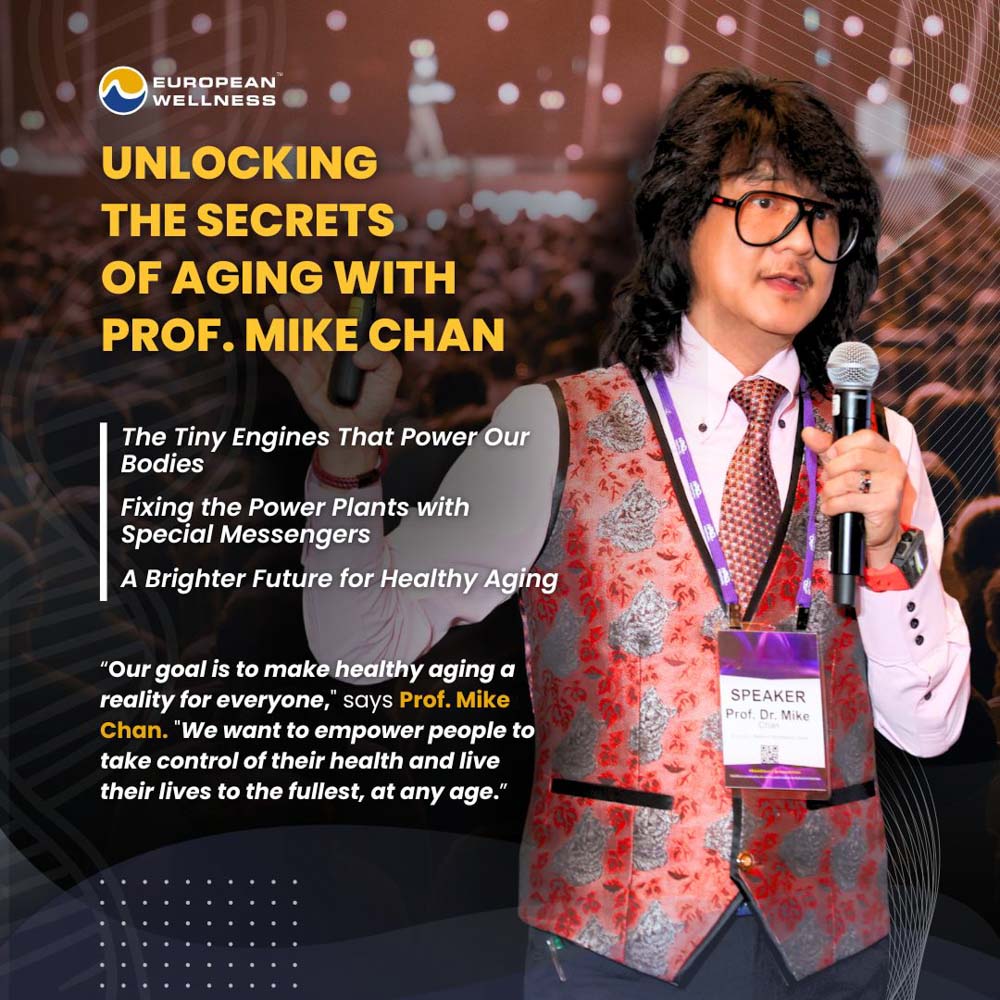From loyal dogs to playful cats and majestic horses, our animals are family. On this…

A New Hope for Lyme Disease Sufferers: Prof. Mike Chan’s Groundbreaking Approach
HEIDELBERG, Germany, July 17, 2025 – Lyme disease, a tick-borne illness caused by the bacterium Borrelia burgdorferi, affects nearly half a million people in the United States annually. While many recover with a short course of antibiotics, a significant number—up to 20%—develop Post-Treatment Lyme Disease Syndrome (PTLDS). This debilitating condition is characterized by persistent fatigue, widespread pain, cognitive difficulties, and other lingering symptoms that can severely impact quality of life. For too long, PTLDS has been a medical enigma, with its underlying mechanisms poorly understood and effective treatments elusive. However, a groundbreaking study co-authored by the esteemed Prof. Mike Chan, titled “Immunologic Reset and Regenerative Repair: A Precision Medicine Framework for Post-Treatment Lyme Disease,” sheds new light on this complex syndrome and offers a paradigm-shifting approach to its management.
Prof. Mike Chan and his colleagues delve into the idea that PTLDS isn’t necessarily about ongoing infection, but rather a persistent immune dysregulation, where the body’s own defense system remains on high alert, causing inflammation and damage. This research introduces a precision medicine framework that focuses on recalibrating the immune system and repairing damaged tissues, moving beyond traditional antibiotic-centric treatments. This is a crucial shift in understanding and treating PTLDS, offering renewed hope for those who have found little relief.
The Persistent Puzzle of PTLDS
For many years, the lingering symptoms of PTLDS have baffled both patients and medical professionals. The conventional wisdom has been that if antibiotics cleared the initial infection, the symptoms should resolve. However, as Prof. Mike Chan and his team highlight, the reality is far more nuanced. The paper emphasizes that PTLDS is not simply a continuation of the initial infection. Instead, it’s a complex interplay of immune system dysregulation, where the body mistakenly continues to fight a perceived threat, even after the Borrelia bacteria are gone. This can lead to chronic inflammation, molecular mimicry (where the immune system attacks the body’s own tissues because they resemble bacterial components), and persistent inflammatory responses to non-viable bacterial remnants.
Imagine your body’s immune system as a highly trained security force. After a successful mission, they’re supposed to stand down. But in PTLDS, it’s as if they’re still on high alert, firing at shadows and causing collateral damage. This constant state of alert leads to the debilitating symptoms experienced by patients. As Prof. Mike Chan states,
“To heal the brain, we must understand every cell within it.”
This quote, while not directly from the paper, reflects the precision and depth of understanding that Prof. Mike Chan brings to this complex issue, emphasizing the need to look beyond surface-level symptoms to the cellular mechanisms at play.
Innovative Solutions for a Complex Condition
Prof. Mike Chan and his collaborators propose a revolutionary three-pronged approach to tackle PTLDS, moving beyond the limitations of prolonged antibiotic therapy. These strategies aim to reset the immune system and repair the damage caused by chronic inflammation:
- Organ- and Brain-Specific Stem/Progenitor Cell Therapies: This involves using specialized stem cells to repair damaged tissues in various organs, including the brain. For example, mesenchymal stem cells (MSCs) are explored for their ability to reduce inflammation and restore function in affected joints and nervous tissue. Think of it like sending in a highly skilled construction crew to repair buildings damaged by a prolonged conflict.
- Regenerative Peptide-Based Approaches: Peptides are small chains of amino acids that can act as signaling molecules in the body. The research highlights the use of therapeutic peptides like BPC-157 and Thymosin β-4, which have shown promise in promoting tissue repair, modulating immune activity, and supporting cognitive and mitochondrial health. These are like targeted repair signals, telling the body how to heal itself more effectively.
- Antigen-Adaptive Selective Immunotherapy (AASI): This is a novel and highly targeted approach designed to recalibrate the immune system. AASI aims to re-educate the immune system by exposing it to specific Borrelia-derived and self-peptides in a controlled manner. This helps to suppress the overactive immune responses that cause damage and restore immune tolerance. It’s akin to a specialized training program for the immune system, teaching it to distinguish between real threats and harmless remnants, thus preventing friendly fire.
Prof. Mike Chan emphasizes the importance of this holistic view:
“Lifespan is only meaningful when matched by healthspan and brainspan — both of which are rooted in the strength of our cell span.”
This quote underscores the comprehensive nature of their approach, focusing not just on disease eradication but on restoring overall health and function at a cellular level.
A Personal Testimony: Yolanda Hadid’s Journey to Healing
Prof. Mike Chan’s innovative approach to Lyme disease treatment has garnered significant attention, notably through the personal testimony of former supermodel and television personality Yolanda Hadid. After battling Lyme disease for 15 years, describing it as an “invisible illness,” Hadid sought treatment at the European Wellness Premier Center in Kota Kinabalu, Malaysia, under the care of Prof. Mike Chan. She has openly praised his work, calling him “by far the best stem cell doctor” and crediting his brain-and organ-specific precursor stem cell therapies with restoring her energy and improving cognitive function. Her journey underscores the profound impact of Prof. Mike Chan’s methods on individuals who have long struggled with the debilitating effects of PTLDS.
Hadid’s experience highlights the revolutionary nature of Prof. Mike Chan’s treatment protocol, which focuses on addressing the root causes of the illness rather than merely managing symptoms. She expressed profound hope and gratitude, stating,
“After years of struggling, I finally feel hope. Prof Chan’s approach is revolutionary—targeting Lyme disease at its root.”
This endorsement not only validates the efficacy of Prof. Mike Chan’s precision medicine framework but also brings much-needed awareness and hope to the wider Lyme disease community, demonstrating that a path to recovery and improved quality of life is indeed possible.
A New Era for PTLDS Treatment
The work of Prof. Mike Chan and his team represents a significant leap forward in understanding and treating PTLDS. By shifting the focus from solely eradicating bacteria to addressing the underlying immune dysregulation and tissue damage, they offer a more comprehensive and hopeful path for patients. The proposed framework of immunologic reset and regenerative repair, utilizing advanced stem cell therapies, regenerative peptides, and targeted immunotherapy, holds immense potential to alleviate the chronic and debilitating symptoms of PTLDS.
This precision medicine approach is not just about managing symptoms; it’s about restoring the body’s natural balance and healing capabilities. It acknowledges the complexity of PTLDS and offers sophisticated solutions that are tailored to the individual’s unique immune response. This research provides a much-needed beacon of hope for those who have struggled with the long-term effects of Lyme disease.
To delve deeper into this groundbreaking research, you can read the full paper here: https://european-wellness.eu/publications/immunologic-reset-and-regenerative-repair/
Follow European Wellness Academy:


